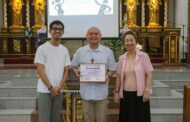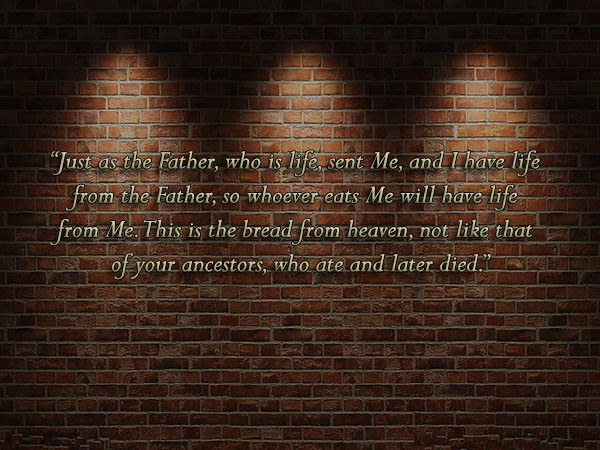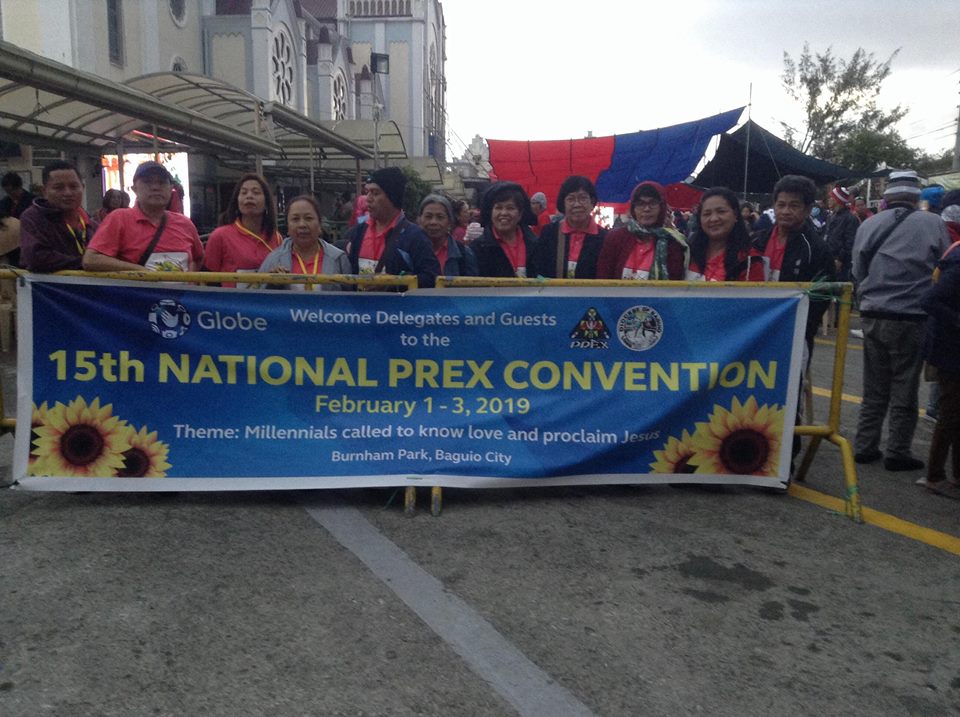
EXACTLY 4,290 PREX delegates filled the bleachers of the Athletic Bowl of Baguio City on the last third day of the 15th National PREX Convention. The last-minute change was a strategic stroke owed to the generosity of the city’s poet-mayor, Hon. Mauricio Domogan; the humongous crowd could not have been amply accommodated at the original venue, St. Louis University Laboratory School. The marvelous mob came from nearby Pangasinan and as far as Marbel, Cotabato City, Mindanao.
Three clusters of worshippers were arrayed in the Our Lady of the Atonement Cathedral, and on her left and right grounds. Two video walls were put up to make virtual their visual attendance in the liturgical celebration that blessed the opening of the assembly.
Before the Holy Eucharist was celebrated, Baguio City Mayor Mauricio Domogan surprised everyone with his poetic welcome in Tagalog, a feat that was as extemporaneous as it was expressive of his effusive joy in Baguio being the convention venue again after so many years.
Baguio Bishop Victor Bentico, Mass presider, was also the homilist. His homily also addressed the topic of Session 1: “Inang Maria: Tanglaw ng Kabataan sa Makabagong Ebanghelisasyon” which underscored the convention theme: “Millenials – Called to Know, Love and Proclaim Jesus”.
Greeting all with a warm welcome, he hoped that his rather long talk would not lull the audience to sleep as the weather was understandably conducive thereto. He was glad to note that Baguio was hosting PREX again for the fourth time since 1991 and shared his excitement that the convention expected five thousand attendees. Because, like the birds enjoying the branches of a grown mustard seed, many souls, family members and PREX graduates have been renewed and reconciled with parishes, praying silently before the Blessed Sacrament for renewal of men and country and constantly offering rosaries. Prayer is one of the activities PREX ardently espouses so he urged everyone to continue praying for healing, to crush the head of evil, change society and renew families. New wine and new skin are what we need, he intoned. So the call for millenials to be containers that expand while wine ferments is like the power of PREX: mainit, katakam-takam, a big challenge, updated for the youth who are men enough to accept the change. To be beloved, gifted and empowered, as they are loved by the Father, depicted in the logo as the hand carrying a young human figure, God’s hand propping up young minds, saying, “I am with you and will strengthen you with the right hand of justice.” Pray for millenials, the Bishop continued, they who represent a church that mirrors the love of God. The church is for them, love and obey them, accompany their journey with patience and sacrifice to guide them, especially the confused, like the rich, young man who asked Jesus what he must do to obtain eternal life.
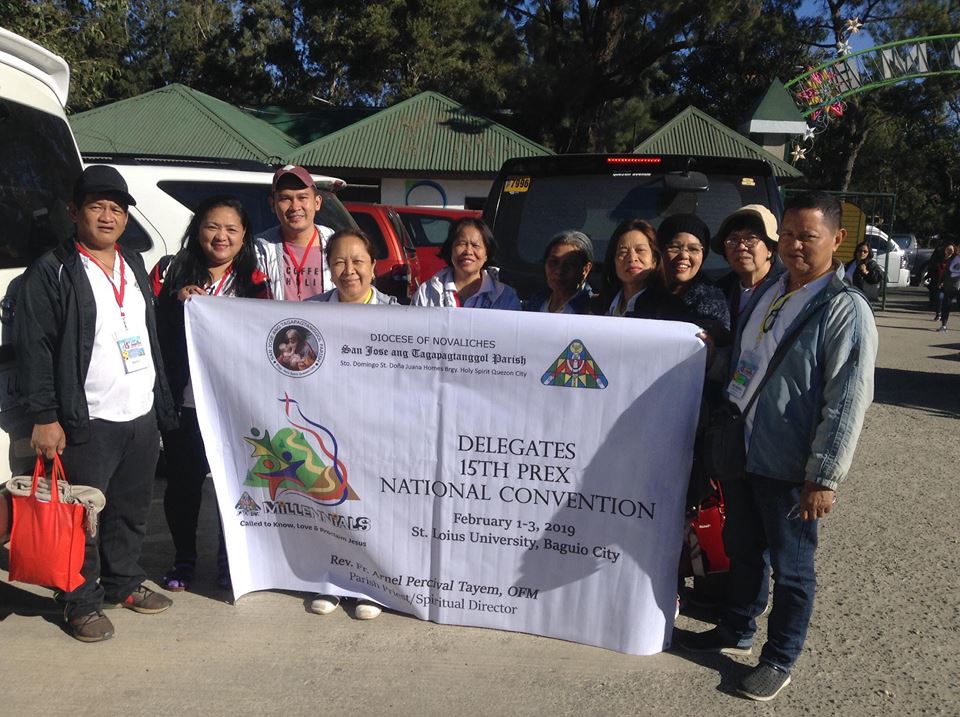
The Bishop asked if we are we ready to stop and listen to Jesus, give away our riches and possessions and make Mary our light and model. How? By going back to her apparitions, as in Fatima, through penance and conversion. The church is suffering and we should not be silent. Not when there is no respect for the sacred, when they bombed Jolo and insulted the Holy Trinity. When evil dominates good, he said, the message of Fatima is valued. Therefore, the millenials should be like the logo, shining in a world of darkness, rooted in Christ, like the mother of the Savior was rooted in her Son. Go back to the annunciation and the joyful mysteries, said he, keep all things in your heart, allow the descent of the Holy Spirit ponder in it and take root in her Son. And as you renew and evangelize, the shining Christ will shine more brightly. There is no time to wait, the Bishop concluded.
After the bible enthronement, Monsi Romy repeated his transfiguration exhortation, “It is good to be here,” likening hilly Baguio to Mt. Tabor, as he stressed the genius of Msgr. Fidelis Limcaco, PREX pioneer, in launching the first encounter in the cathedral itself “kahit di kasya” because PREX is a church movement and, therefore, cannot be without a parish priest. From Baguio, he said, as in Tabor, we go down transfigured and transformed.
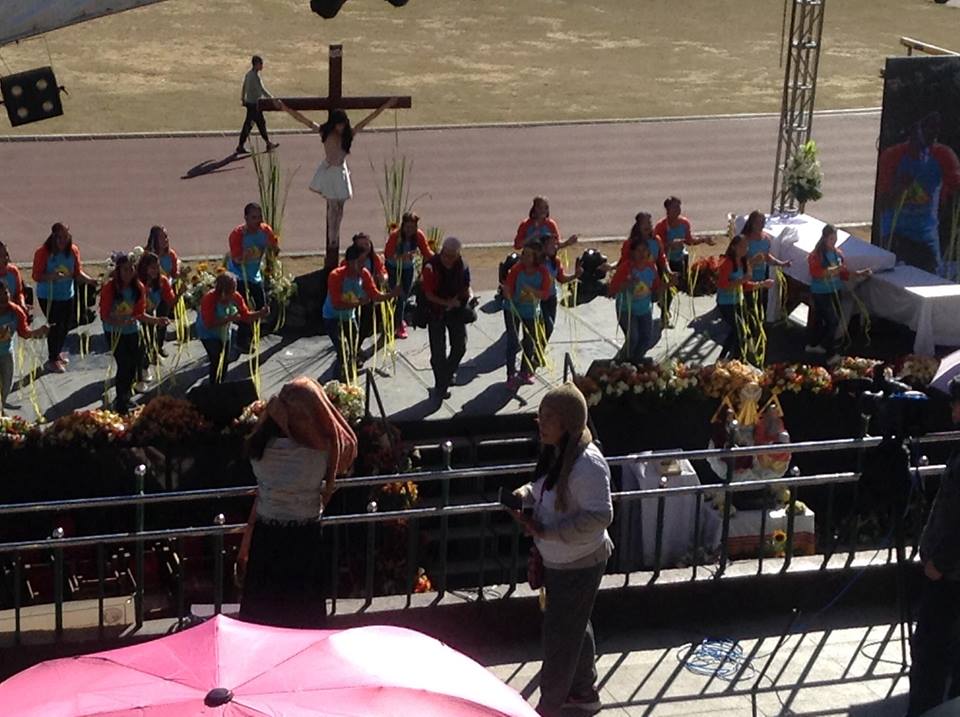
As “Tugtog,” the award-winning PREX theme song accompanied Monsi’s spiel, he happily announced that from 1,900, the number of participants swelled to 3,900.
The next speaker was Fr. Egai de Jesus, Parish Priest of Our Lady of Mount Carmel Church, Sta. Maria, Bulacan. His topic was “Millenials and the Church: A New Perspective”. He offered that the novel term “millenial” is gaining popularity but has a vague connotation. The youth, particularly those who go through the PREX weekend, in choosing a ministry, pick out music, because it is, to their minds, the only activating aspect of the seminar. Like, when their old counterparts say the rosary at Mass, the millenials get lost. But Fr. Egai says our God is a God of generations, yesterday, today and forever. He proceeded to describe a millenial as one born between 1980 and 1994 or of Generation Y. Instead of treating them with sensationalism, the church should be open to them. In order for them to, because of their social media dynamic, not call her late and, therefore, irrelevant. Instead, she should adjust her evangelization efforts and give space to millenials toward a mutual stride.

From Legazpi, Albay, the third session was handled by Jesuit Fr. Jboy Gonzales whose surefire opener was that he is often mistaken for a rich guy because when he is in a mall, he does the “Albay- this” “Albay-that” act. Then he proceeded to credit McCann Erickson for his researched visuals. St. Ignatius of Loyola told us that we are made to praise, honor and serve God and save souls, through humanity, spirituality, altruism and transformative leadership. Millenials, he said, are kaleidoscope kids, or halu-halo, who are being pitted against their tribu-tribo (or clan-conscious) counterparts. What we, their elders, cannot do is dictate to them, so we can make them do the work, on their own Christ-centeredness. In his research, age 20 is an anxious stage, whose talents should be nurtured without labeling the person. Twenteeners are of an uncertain generation with no commitment. On the other hand, age 30 is stressful so should never be asked the question, “Wala ka pang asawa?”
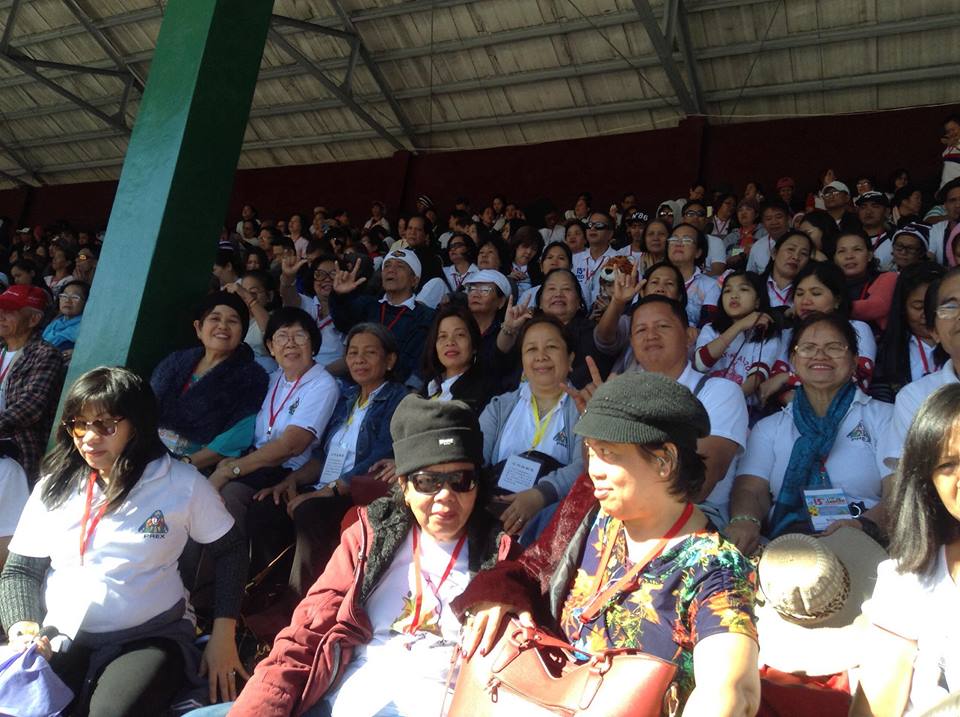
For those in the “adulting” stage, social media is a dress rehearsal and bullying is a dial tone. Therefore, we should assume a welcoming environment and mindset. A growth mindset which, even if we are not the motherly type, will put up with even the problematic, “samahan lang sila sa buhay”. As he got over his shedding, he exhorted his audience to be like priests who can be lovable, because well-rounded and
-experienced, develop their spiriruality and the ministry of accompaniment (this last one I related to very deeply). We all can create community with an average of 6 best friends. In one place among many, he hastened to add, and he left us to imagine how many best friends that would be. And how many best places, I provided.
Provide what is meaningful, he said. Search and research, he pled, citing the Hawaiian “wiki” for (quick) results. Let the youth suffer as they study, tell them the truth (as you would friends), as authentic friendship has loyalty, honesty and sincerity, like PREX, backwards, has experience, renewal, parish. I thought that was a timely reversal of roles, the young’s lessons rejuvenating the old church, through a fresh shot in her aging arm, perchance to make her ageless.
He continued by saying the elders should develop the youth’s love for others, make them care for worthwhile persons/things, discover that joy is found in others, not in the self, accept, not ostracize, people who are different, like he cried when he was ordained, because equality is not negotiable, and it’s all right to be diff, and to lead by following, he added.

Enchanting is awesome, he said. Experience is the new intelligence, funny the new sexy, fire the new hotness. If you have all these, said he, you are enchanting to God. His final shot was, “Fall in love, stay in love and it will decide everything”.
The homily of Bishop Ruperto Cruz Santos, “Effects of Absent Overseas Filipino Worker-Parents on Millenials” was also his talk, Session # 4. After praising and thanking God, he asked the question “Who among you have OFWs as children or parents?” After hands were raised and withdrawn, he read a letter from a daughter whose mother was working abroad. It said that the writer misses her mother everyday. The bishop thinks it is also what the mother feels, what parents abroad want to say to the children they left behind. That separation and physical absence amount to pain, enduring sacrifices for a good and bright future and, for millenial children, are the effects of employment abroad. The bishop said that they, in CBCP and ECMI, disagree with effects for they are misconceptions. Especially if they mean that children of OFWs are “pasaway, pabigat at pahirap”. They do not accept because 1. parents desire the safety, security and success of their children; 2. parents will do what’s best for their children, suffer harsh climates and overbearing employers because they care; and 3. parents never deprive their children nor make things hard for them and the bishop asked the youth to remember their parents’ prayer when they were sick, “Lord, ako na lang.”
Then he asked them, “Kung di kayo pasaway, pabigat at pahirap, who are you?” His answer to his own question, “Meron akong tatlong K: kaligayahan, kalakasan, kayamanan. Young children of OFWs, you are the 3 Ks of parents, country and church, in their homesickness and sorrow, your good doing will make them the same inspiring joy, strength and treasure.
The ending of the letter of daughter to mom went like this (translated from the original Tagalog): Dearest Inay, when you boarded your flight to Abu Dhabi, there was no effect on me, I didn’t ask what you were feeling, even if I knew you were holding your tears and forcing your smile, because you were worrying about us. I didn’t even ask because I was thinking only of myself and freedom, that there will be no more sermons and strictness. But you know, it wasn’t easy. It was hard, because I miss your sermons and understand that you do it for the sake of our welfare. Because every time I wake up, my clothes and food are ready. I also learned how to do household chores because of you. In spite of my stubbornness and disrespect to you, you never stopped taking care of us. I don’t know how to say it but now that you’re gone, I’m saying that I miss and love you. Forgive my stubborness and defiance. One day, you will come home and open the door for me and ask if I have eaten. When that happens, I will tell you, “I love you, Inay!” Then the bishop repeated the 3 negative Ps and the three positive Ks.
Brother Michael Angelo Lobrin used to be a seminarian in Monsi Romy’s class. His was Session 5, “Challenges Facing Millenials”. The Kapuso personality admits that his jokes are only for the intelligent because the administration, instead of appreciate them, makes a mockery of him. All because he is a staunch defender of the church and priesthood. Then he gave the crowd a rapid-fire sampling of his wit, from making fun of local airlines to the liturgy which he described as what comes after letter “f”. From the sober homily of Bishop Santos, the crowd roared. Then he turned serious and segued into the lucky lay ministers who hold the sacred Host and so he advised them not to smoke because when they do, Christ tastes like Marlboro! While the audience laughed their brains out, he rolled away by reprimanding church servants as delegated only, not divined (so shouldn’t strut like peacocks), and lashed out at the PPC squabbles because they waste the lives of Fr. Neil and those who perished in the Jolo bombing. God called not the able, he smirked, but those who respond to the call to be able. He didn’t call those who fall asleep in talks about the bible, but those who are able to acquire focus, gratitude and humility. Not those who do the stations of the cross in reverse. And he told of the old lady whom he observed doing exactly that so approached her and told her she was doing it wrong. The old lady was enlightened and exclaimed, “No wonder Christ was getting stronger, He even ate!” At this side-splitting juncture, l remembered Kuya Ross and turned on the waterworks. As though he read me, Brother Michael said that sadness is caused by counting what you don’t have (I inwardly said lost), and he said he was going up to the bleachers because he looked like the Sto. Niño among the flowers that framed the stage. Dismounting therefrom and scaling the benches, the comic sacristan from San Rafael, Bulacan and Mataas na Kahoy, Batangas didn’t lose his stride and proclaimed life is not found in situations but in dispositions. And he told of the story of a mother who, afraid to lose her child in a very crowded mall, advised him to “huwag bibitaw sa palda niya”. What happened later was an announcement blared from the loud speaker: Anyone who has lost a male child, please claim him at the Customer Service; the kid can be recognized by the skirt he is tightly holding on to. Laughter. But Brother Michael wasn’t done yet. He continued that it was clear to the public who his mother was, she had no skirt. As the laughter ripped and roared, he prayed for us, that we may laugh with God, and never let go of the skirt.
Monsi Romy announced that, in the NAPPS meeting last night, the consensus was to give an award to the parish with the biggest delegation. Our Lady of Mt. Carmel had 151 delegates and took the prize, a madonna-and-child painting of Araceli Dans, sister of Msgr. Fidelis.
On the convention’s last day, Fr. Jeffrey Javado’s talk was Session # 6, “Kabataan: Pag-asa ng Bayan, Pag-asa ng Simbahan”. He led the prayer to the Blessed Virgin Mary, mother of evangelization, to bless PREX because it is the church’s effective tool in empowering millenials to evangelize. Then he started his personal faith story, one that used him as a youth to commit to evangelization. He proudly ascribed to his church, St. Vincent Ferrer Parish, 14 years of active interaction with his mostly young parishioners. Yet he admits that the church still needs pastoral experience, the problem of Catholics being sacramentalized but not evangelized, which he said he will discuss in the open letter of the youth to the church. It was a yearning of the young to be deemed partners of, not obstacles to, Christ’s mission.
Because people listen to personal stories, he was reminded to tell what he has told, showed an old picture of his young Igorot mom, illiterate like his dad, both workers in a vegetable garden, where their pagan love affair bloomed. Then he retold his school days of extreme brokenness, a shameful bottomless picture he didn’t have the heart to expose so deleted, the kilometers they had to walk to school barefoot in the cold Benguet morning they had to piss on their numb feet to bring them back to life. He showed a second picture of his graduation, which was a disappointment, because he was wearing borrowed female trousers and oversize rubber shoes, even if he was the valedictorian. As a scholar, he only had P10 for fare to school he had to walk back. He was laughed at in school because of ripped pants which he glued together with bubble gum. Finally, he projected pictures of him with his family, during his ordination and in an outing. The joy he unabashedly credited to Sr. Nora Toingna, a nun who evangelized his parents, a spiritual debt he pays by prioritizing evangelization. And PREX is his personal and family (including the youth) tool for renewal with Christ as the Evangelion.
The youth needs formation, community, mission. They still need to be formed and guided, before the world gets them. PREX can be modified to be an effective tool to empower the youth. And he gave the ABCs therefor: Activities, activities, activities; Basic formation programs; and Caring, loving atmosphere. Because the youth are gifts. And they want to be life-giving.
Most Rev. Jose Palma, Archbishop of Cebu, was the Mass presider and homilist. His homily had “Pedro Calungsod: Model for the Millenials” as Session 7. San Pedro Calungsod was a model of faith with which Vatican opened the church door to let the world enter her heart, home and parish with the elements of information, transformation and performation.
In the Memorial segment, the dearly departed PREX luminaries were fittingly given homage. All those lives were dedicated almost exclusively for PREX. I achingly missed one person (not because he is a friend) but because I cried when I saw him saluted in one page of the souvenir program and he was not among the roster of pushers (pardon my borrowing Ate Mila’s pun) of PREX. That he spread himself (rather thinly) going not only to PREX but to far-flung others in his evangelization mission, alone unto death, in dire poverty, made him a class above all those who were honored publicly. On hindsight, I thanked God he was treated humbly, without noisy fanfare, as silent as his page that only rustled when flipped, which made the lump in my throat tolerable, because he would have preferred that, he of humble heart.



